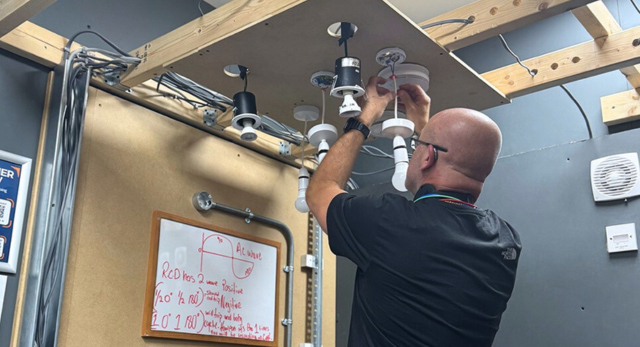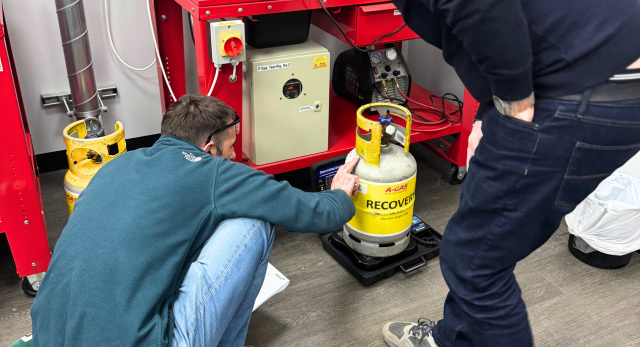The Approved Code of Practice (ACoP): The control of Legionella bacteria in water systems (L8) has been updated, tasking property professionals with taking extra precautions to reduce the risk of this potentially fatal disease. Applying to water systems in residential rental premises, these changes affect a vast number of homes, with many landlords and letting agents requiring assistance to meet the new criteria.
Changed responsibility
Landlords and letting agents are now required by law to carry out a risk assessment on all hot and cold water systems to ascertain the threat of Legionella; failure to do so could see hefty fines of up to £20,000. The most recent update has seen a change in ‘duty’ with all agents now responsible, whereas in the past, only those in charge of hot and cold water services were liable. This means that some individuals with little or no understanding of plumbing and heating, need to be more aware of the dangers water systems pose and take-steps to prevent Legionnaire’s Disease.
To meet these new requirements, landlords and letting agents need to have a risk assessment carried out which must consider the following:
- Identifying and inspecting areas of stagnant water
- Identifying infrequently used outlets
- Check thermostatic mixing valves are fitted correctly and working
- Disinfect hot and cold systems where needed
- Advising tenants of the potential risks and how to take precautions
- Record keeping, for at least five years
Plumbing systems are recommended to run at 60c – a temperature capable of killing off legionella bacteria. This is generally fine within private properties where thermostatic mixing valves on baths will prevent scalding.
While all of these tasks can potentially be carried-out by the landlord of letting agent, there is a real opportunity for plumbing and heating engineers to offer their assistance. Why not package up a ‘Legionella Prevention Programme’ – maybe as part of general annual servicing, which is already mandatory for rented properties.
You can find more advice for Landlords here.
Legionnaire’s Disease – the facts:
[youtube https://www.youtube.com/watch?v=XdPcH1YEn-k?rel=0]
Legionnaire’s Disease is a severe form of pneumonia, which can be particularly serious in the elderly or those with a weak immune system. With many social housing properties, in particular, lived-in by vulnerable groups, making sure their hot and cold water systems are Legionella free is essential. At the time of writing, we’re in the midst of the seasonal peak, with the bacteria thriving in the warmer summer months.
Outbreaks can occur in any watercourse, natural or man-made, with a number of factors increasing the risk, including:
- water temperature between 20-45c
- creating and spreading breathable droplets of water
- stored and/or re-circulated water
- the presence of sludge, scale or fouling, which is a source of nutrients for the organism.
Humans contract the disease by inhaling small droplets containing the bacteria, and symptoms can be similar to those of flu; for example, high temperatures, fever, chills, cough, muscle pains and headaches, and can begin at any time between two and 14 days after being infected. Severe cases will see pneumonia, mental confusion, and possibly death.
Cluster cases are nearly always down to poorly maintained, and/or poorly monitored, cooling tower systems, air conditioning, water holding and water supply systems. In some instances this can be attributed to poor training, complacency, or due to cut backs on relevant checks and maintenance.
Although official figures state that there are approximately 400 legionnaires’ cases per year in the UK; experts believe it could be nearer to 9,000, as many cases are not reported or simply passed off as seasonal flu.
Growing marketplace
With rising house prices and stricter criteria for getting a mortgage, the rental housing sector is ever-expanding, meaning more properties governed by the revised ACoP legislation. Installers already working in this sector, or with designs on getting new business out of this marketplace, need to make themselves and their customers aware of these updates; to help prevent the spread of Legionnaire’s Disease and also create additional revenue streams.
Train to prevent Legionnaire’s Disease
As a plumbing and heating professional you should have a basic understanding in the prevention and control of Legionella. There is specific training available, however; particularly useful for those that maintain rented properties on a regular basis. We’ve updated our Legionella Prevention and Water Treatment course to include the new emphasis on the landlord’s responsibility, designed to help installers and agents understand the legal requirements and gain the competence to complete a risk assessment and activate the appropriate control measures.
The one-day course includes:
- Identifying and assessing sources of risk
- Preparing a scheme to prevent or control risk
- Implementing, managing and monitoring precautions
- Keeping records of controls measures taken









